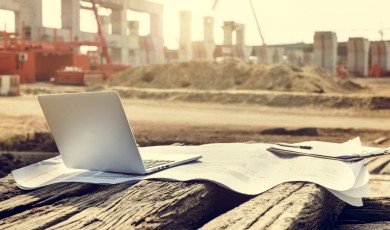
Sustainability in construction is no longer just a trend, it's a necessity. As climate change accelerates and urban development surges, the need to build responsibly has never been more urgent. Whether you're a developer, architect, or project manager, implementing a sustainable building strategy isn’t just good for the planet, it’s smart business.
In this article, we’ll explore why sustainability should be a priority in your next construction project, how it affects everything from materials to language, and how companies like PoliLingua, especially in Italian-speaking contexts, play a subtle but important role in making sustainable projects succeed internationally.
1. Sustainability = Future-Proofing
Sustainable building isn’t just about being eco-friendly, it's about resilience. Energy-efficient systems, durable materials, and smart design help reduce long-term costs, improve building performance, and meet ever-evolving environmental regulations.
Governments around the world are tightening their building codes. In the EU, for instance, Italy has adopted increasingly rigorous sustainability standards. Builders and developers who don't adapt will find themselves left behind. A forward-thinking strategy prepares your business to meet tomorrow’s demands today.
2. Clients and Investors Are Demanding It
Sustainable construction has moved from a “nice-to-have” to a market expectation. Homebuyers, commercial tenants, and even institutional investors are prioritizing projects that align with ESG (Environmental, Social, and Governance) principles.
In countries like Italy, there's growing demand for buildings that reduce emissions, improve insulation, and incorporate renewable energy sources. To communicate this effectively, whether through marketing materials, building certifications, or investor reports professional translation into Italian can be vital.
That’s where PoliLingua comes in. As a global language service provider with deep experience in technical and environmental translation, PoliLingua helps ensure that green building documentation is perfectly adapted to Italian-speaking clients, authorities, and stakeholders. From LEED compliance manuals to environmental impact reports, linguistic precision makes a difference.
3. Global Projects Require Localized Sustainability Messaging
Sustainability means different things in different regions. A project based in Northern Europe may focus on energy conservation through insulation, while a Southern Italian project might emphasize solar energy and water efficiency.
If you’re working on international or multilingual projects, it’s critical to localize your sustainability strategy, not just your materials. Translating core messaging, technical specifications, and project documentation into Italian isn’t as simple as running it through Google Translate.
PoliLingua specializes in localizing technical documents, government communications, and sustainability language for Italian-speaking regions. Clear, culturally adapted language is essential for getting stakeholder buy-in, passing local regulations, and creating marketing campaigns that resonate with your target audience.
4. Sustainable Materials and Certifications Must Be Clearly Documented
Modern construction often involves sustainable materials like cross-laminated timber, recycled steel, low-VOC paints, and smart insulation. But using green materials isn’t enough you need to document it thoroughly to meet regulatory and client requirements.
Italy, as part of the EU Green Deal initiative, has adopted stringent criteria for sustainable materials and energy performance. Certifications such as LEED, BREEAM, and ITACA all require detailed reporting and documentation. Just as e-commerce brands benefit from multilingual product descriptions crafted by professional translation agencies, construction firms need precise multilingual documentation to prove compliance and highlight the value of sustainable materials.
This is where language services become an operational necessity. Partnering with a company like PoliLingua ensures that all product certifications, technical datasheets, and compliance records are translated with industry-specific accuracy into Italian.
5. Sustainability Strategy Is About Communication as Much as Construction
A successful sustainable project isn’t just about what you build, it’s also about how you tell the story. Municipal authorities, funding institutions, local communities, and the media all want to understand your sustainability vision.
When your stakeholders include Italian-speaking governments, citizens, or clients, it’s critical to get your messaging right. PoliLingua supports construction firms, developers, and engineering consultants in conveying environmental strategy clearly in Italian, from press releases to community outreach materials. In global contexts, this may also extend to simultaneous interpreting at international conferences, ensuring real-time communication of sustainability strategies with diverse stakeholders.
This is particularly important in Italy, where regional dialects and formal language styles influence how professional communication is received. PoliLingua’s localization services ensure that your sustainability strategy doesn’t just get translated, it gets understood.
6. Digital Tools + Translation = Scalable Sustainability
Modern construction increasingly relies on digital tools, BIM (Building Information Modeling), digital twins, and sustainability analysis software. These systems generate vast amounts of data that often need to be shared across borders.
If your project team is multinational, or if you’re submitting proposals and reports to Italian-speaking stakeholders, having your digital outputs accurately translated into Italian is key to transparency and trust.
PoliLingua integrates with technical workflows to translate CAD annotations, BIM reports, energy simulations, and environmental audits, helping teams align globally without confusion or miscommunication.
Conclusion
Sustainable construction is the future, but it's also happening now. Whether you’re pursuing energy efficiency, low-impact materials, or net-zero targets, how you plan, document, and communicate your strategy is just as important as the construction itself.
And when your project crosses borders, language becomes a sustainability tool in itself.
PoliLingua, with its expertise in Italian translation and localization, helps construction professionals ensure their green initiatives resonate with clients, regulators, and communities in Italy and beyond. Often, sustainable projects also require certified translations of official documents, from permits to compliance certificates, to be legally recognized across borders.
After all, sustainability is global, but to make it work, it must speak the local language








